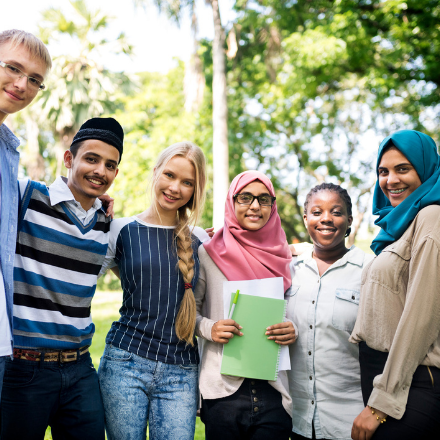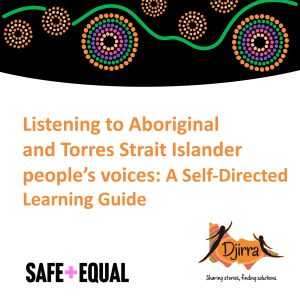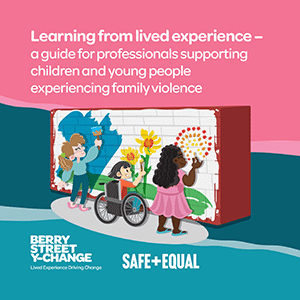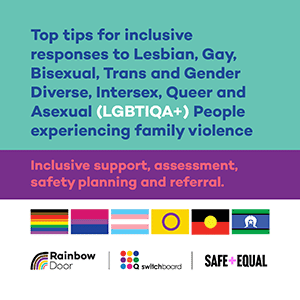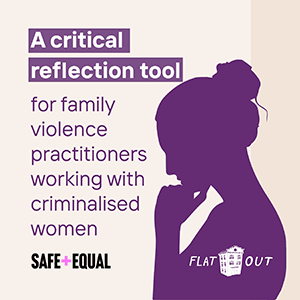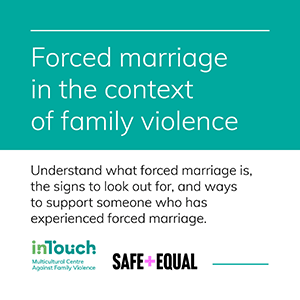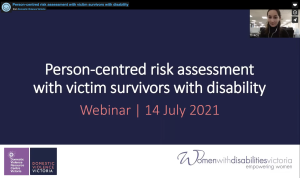As the specialist family violence sector continues to develop and evolve, children and young people impacted by family violence still need urgent and dedicated support.
Held virtually on 10 November 2021, ‘Responding to Children and Young People’s Experience of Family Violence’ was the final session in Safe and Equal’s 2021 Specialist Family Violence Leadership Group Forum.
The session provided an opportunity for leaders in the sector to hear directly from young people impacted by family violence, and to further explore what it really means for our sector to recognise and support children and young people as victim survivors in their own right.
Youth advocate panel discussion: working with young people in their own right
Setting the scene for the morning was the youth advocate panel discussion moderated by Tash, a survivor advocate and member of Safe and Equal’s Expert Advisory Panel. The five youth advocate panelists, Apryl*, Elvis, Liam*, Millie* and Kaitlyne, provided unique insight into how systemic responses can evolve to be more inclusive and responsive to children and young people, based on their experience and expertise.
When discussing what it would look like for a service to work with a young person in their own right, panelists described the feeling of being ‘invisible’ in services and being seen as an extension of a parent rather than as an individual person. There are different, individual support needs required for children and young people, and services need to directly engage with them to ensure their needs are prioritised and seen as separate to the needs of adults, as well as other children and young people. Family violence can impact each child or young person differently – even those within the same family.
The panel discussed gaps in the current service system, particularly around the lack of dedicated funding or support available for victim survivors turning 18, for young people from diverse cultural backgrounds, and for young LGBTIQA+ people experiencing family violence. Panelists described how complicated and overwhelming it can be to navigate services and environments, which can feel like a full-time job. They recommended a more holistic approach, where services consider the intersectionalities that impact young people and provide warm referrals and support accordingly.
The importance of staff training, sector collaboration and the inclusion of lived experience within service frameworks was also highlighted by the youth advocates as integral to creating meaningful, ongoing change. The panel discussed how essential it is that children and young people see themselves reflected at all levels of an organisation, including as Board members.
Prioritising the needs of children and young people in system reform
In her keynote address, Principal Commissioner for Children and Young People Liana Buchanan noted that this event was the first time children and young people had been brought together with the specialist family violence sector in this way.
Calling for the ongoing prioritisation of children and young people in public policy and service design, Commissioner Buchanan reflected on the immense work that has been done in this space, particularly following the Royal Commission into Family Violence, but acknowledged that there is much more to be done.
“We cannot afford to take such a long time to improve responses to children and young people who are experiencing family violence.”
Liana Buchanan, Principal Commissioner for Children and Young People
Break-out room discussions
Break-out rooms during the forum provided an opportunity for participants to reflect on specialist family violence responses to children and young people and consider future directions in policy and system reform. Key needs and priority advocacy areas that emerged from these discussions include:
- Increased funding and resources to support children and young people
- Tools, resources and training for services to create a safe and supportive environment for children and young people
- Advocacy for stronger responses to children and young people within our sector
- Embedding of lived experience to ensure services are accessible
- Increased investment and capacity for refuges to respond to the needs of children and young people.
We would like to thank the staff, members and survivor advocates who contributed their time and knowledge to this event. We hope to continue this conversation and build on our practice and policy expertise to provide children and young people with safe and responsive support and services.
Page last updated Monday, January 31 2022
